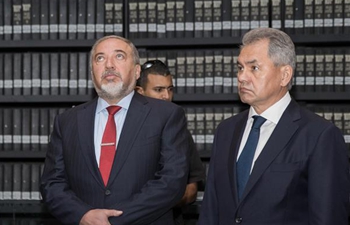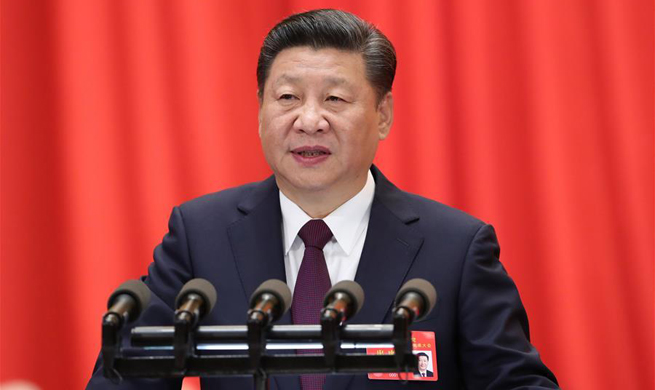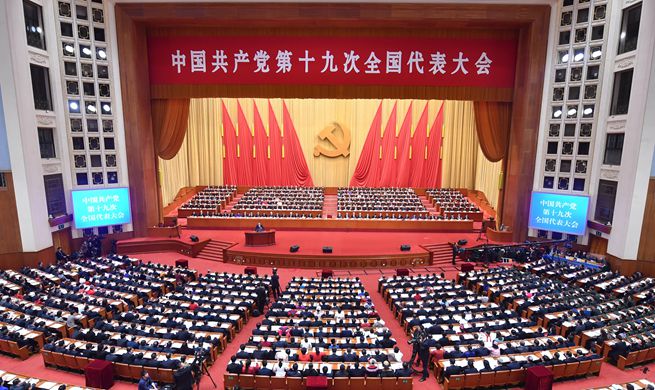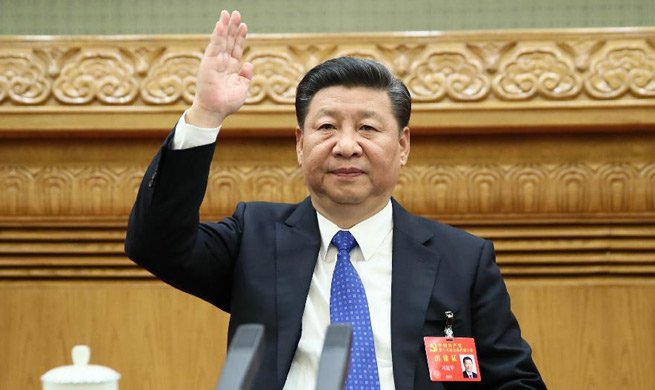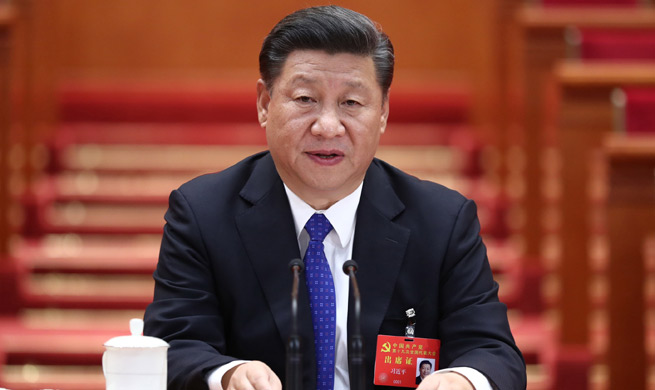WASHINGTON, Oct. 18 (Xinhua) -- Trade ministers from the United States, Canada and Mexico on Tuesday agreed to extend negotiations on the North American Free Trade Agreement (NAFTA) into the first quarter of 2018 with "significant conceptual gaps" among the three countries.
"Parties have now put forward substantially all initial text proposals. New proposals have created challenges and ministers discussed the significant conceptual gaps among the parties," U.S. Trade Representative Robert Lighthizer said Tuesday at a press conference.
Calling upon negotiators to "bridge these gaps," trade ministers have agreed to delay the next round of talks in Mexico City until Nov.17-21 and extend NAFTA negotiations through the first quarter of 2018, he said after wrapping up the fourth round of NAFTA talks in Arlington, Virginia.
Lighthizer also said he was "surprised and disappointed by the resistance to change" from Canada and Mexico regarding reducing U.S. trade deficits, a top priority for the Trump administration.
"We have seen no indications that our partners are willing to make any changes that will result in a rebalancing and a reduction in these huge trade deficits," he said.
However, Canadian Foreign Minister Chrystia Freeland accused Washington of putting forward proposals that would "turn back the clock on 23 years of predictability, openness and collaboration under NAFTA" and in some cases would "run counter to WTO (World Trade Organization) rules."
The United States has proposed new rules of origin for autos, which include a 50 percent U.S. domestic content requirement and raising the NAFTA regional value content from the current 62.5 percent to 85 percent, according to local media.
"Proposed new U.S. national content requirements would severely disrupt the supply chains, make North American producers and manufactures less competitive relative to imports from outside the region and put in jeopardy tens of thousands of jobs across North America," Freeland said.
A win-win-win outcome for the three countries "cannot be achieved with a winner-take-all mindset or an approach that seeks to undermine NAFTA rather than modernize it," she warned.
"We must understand that we all have limits despite over current differences. We must ensure that decisions we make today do not come back to haunt us tomorrow," said Mexican Economy Minister Ildefonso Guajardo.
U.S. President Donald Trump last week threatened again to terminate NAFTA if the three countries could not reach a deal to update the 23-year-old trade agreement.
"If we can't make a deal, it will be terminated and that will be fine," he said, adding the United States could consider separate deals with Canada and Mexico if NAFTA does not work out.
However, trade experts argued that the costs of breaking up the trilateral trade agreement would be very high for all three economies, as North American integration has been going well for over 20 years.




